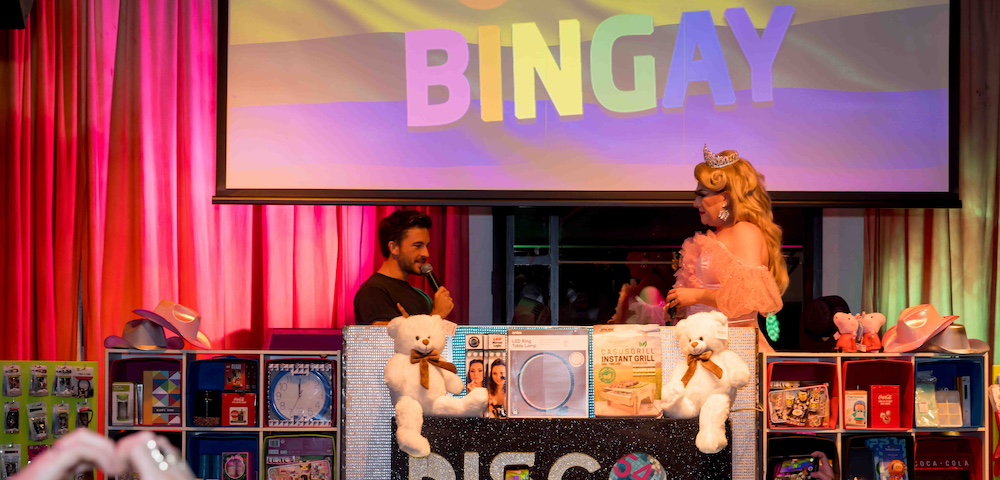
A reputation for writing filth
In Australia for the Adelaide Writers Festival and appearances in Sydney and Melbourne, acclaimed British author Alan Hollinghurst talked to the Star Observer about his 25-year career penning vivid, sprawling novels about English gay men.
Despite this theme running through his five novels to date — among them the 2004 Booker Prize winner The Line of Beauty — Hollinghurst said he was reticent to accept the tag of ‘gay writer’.
“I don’t repudiate the fact that I am a gay writer — and when I started out it was very much the point of it all — but I think gay writing itself as a genre is merging back into the mainstream,” he said.
“It’s been fundamental to me to write from a gay perspective about anything I want. It’s not a limited subset, it’s just a valid viewpoint to write from.”
His latest novel, The Stranger’s Child, tells the story of a charismatic dandy poet in World War 1-era England, whose visit to a Cambridge friend’s family has consequences that reverberate
for decades.
Hollinghurst said he was enjoying interacting with his Australian readership during the trip, having spent the past few years holed up at home perfecting the complex 560-page novel.
“I have such a funny cycle as a writer, because I produce books so slowly — this one came out seven years after the previous one. A lot of my professional time is spent by myself.
“When the book finally does emerge, I find it rather cheering to get out there and connect with people in the real world.”
Unlike many writers, he publicly admits to reading his own reviews.
“When a book does finally emerge, I feel quite interested in its progress in the world. I read most reviews.
“Although sometimes I don’t look — there’s no point in upsetting yourself with abuse. Some reviewers seem to want to prove themselves by showing how totally unimpressed they are by a book.”
As we’ve seen with the recent Jim Schembri controversy (the now ex-Fairfax reviewer gave queer-themed ABC comedy Outland a damning review, labelling it “badly in need of a straight man”), overtly gay texts can sometimes come up from a special kind of scrutiny from heterosexual critics.
It’s something Hollinghurst’s no stranger to, with his explicit depictions of gay sex rankling both reviewers and readers over the years.
“My first book [The Swimming Pool Library] came out in 1988, and it was full of descriptions of casual gay sex. I think a lot of people were shocked by it. There was a visceral reaction, because people just weren’t used to reading about gay sex.
“Some people treated it almost as an anthropological exercise, as if they were taking the lid off to reveal, ‘Oh, that’s what they do’.
“And then a lot of reviewers described it as ‘boring’, which I think is a way of covering up a greater unease. But I had a reputation for writing filth at an early stage,” he laughed.
It was in 1999 that Hollinghurst received his most controversial critique. American novelist John Updike reviewed his novel The Spell in The New Yorker, in the process revealing not only his
discomfort with the book’s gay content, but seemingly his disapproval of homosexuality full stop.
Labelling The Spell boring, Updike wrote that “novels about heterosexual partnering, however frivolous … involve the perpetuation of the species and the ancient, sacralized structures of the family”.
“It was an extraordinary piece,” Hollinghurst recalled. “Here’s Updike, a great analyst of American sexual mores, and he wrote as if everything he knew about homosexuality he’d gleaned from reading my book. As if he’d never come across it in life before.
“He made some notorious remarks about how he missed what he called the ‘animating chirp’ of the female presence, or something like that.
“In other words, it was hard to identify with all these faggots.”
Many don’t share the late Updike’s views, as each of Hollinghurst’s subsequent novels further cement his mainstream literary success.
He did, however, note one unfortunate side effect of his ever-increasing popularity with heterosexual readers.
“In the old days after a reading, you’d be approached by a couple of cute gay boys who’d offer to show you around the bars. Now I get ladies telling me about their reading group,” he chuckled ruefully.
INFO: The Stranger’s Child is out now through Picador.










Great article, very amusing – looking forward to ‘reading’ the new book.